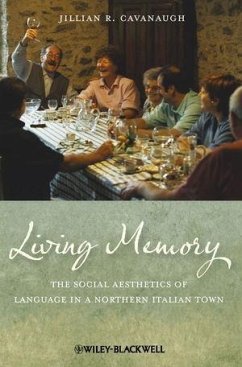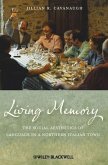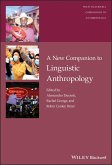Dieser Download kann aus rechtlichen Gründen nur mit Rechnungsadresse in A, B, BG, CY, CZ, D, DK, EW, E, FIN, F, GR, HR, H, IRL, I, LT, L, LR, M, NL, PL, P, R, S, SLO, SK ausgeliefert werden.
- Lukas D Tsitsipis, Aristotle University of Thessaloniki
"An engaging study of the kinds of tensions and paradoxes that make so many minority language situations such nail biters: will conscious effort to revalorize a flagging vernacular strengthen it or kill it? Does highlighting the language's cultural heritage revitalize it or turn it into an attractive but irrelevant museum piece? 'Living Memory' beautifully documents the complex and delicate situation of a stubborn Italian dialect. In doing so, it helps us understand the role language plays in contemporary debates about identity, belonging, citizenship and rapid social change."
- Don Kulick, University of Chicago
-Don Kulick, author of Language Shift and Cultural Reproduction
"Living Memory is a very solid piece of academic work on language maintenance, shift, linguistic ideologies and cultural dynamics in an Italian region and town. It makes a significant contribution to linguistic anthropology."
-Lukas D Tsitsipis, Aristotle University of Thessaloniki
"With empathetic eye and ear, Cavanaugh places Bergamo's committed "locophonophiles," lovers of speaking -- as well as eating -- locally, in the relevant contexts of the wider cultural politics of European and Italian regionalism at the turn-of-the-21st-century."
-Michael Silverstein, University of Chicago









